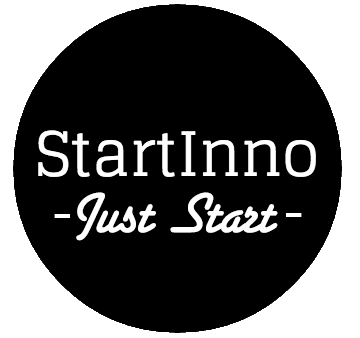Change the world or go home
Disruptive innovation. A term that is used very loosely, we hear it all the time. "Hardly a new topic" was my coworkers reaction when I mentioned full enthusiasm I was writing a blog on this subject. Thanks a lot.
My point is, so many startups - especially tech enterprises - are talking about how their product is going to disrupt a market. The reason for that being that we are moving from an information age to a creative age. Hence many creative startups with big ambitions.
But what is disruptive innovation exactly? Are all markets really on the edge of disruption? And if I want to disrupt a market, how would I go about it? What mindset do I need to have? Which questions should I be asking?
Let’s get one thing straight first: a disruptive innovation is not a break-through innovation. Disruptive innovations transform complicated costly products that previously were available to a few, into simpler, cheaper products available to many. A disruptive innovation does not entail making bigger and better products for existing customers, but going after new markets and new customers.
Second, disruptive and innovation are not the same. Disrupters are innovators, but not all innovators are disrupters. Still with me? Innovation and disruption are similar in that they are both builders. Disruption literally changes they way we think, behave, do business and go about our day to day. Disruption is both destructive and creative. Disruptive businesses are the Davids if you will have it, taking it up against the Goliaths.
"It's hard to put your hand into a car's engine when the car is still running, but that's what disruptive innovation is - changing the way things are done before your business is backed into a corner," says Luke Williams, professor of innovation at NYU Stern School of Business and author of Disrupt.
"If you want to be disruptive, pay attention to what's usually ignored and challenge accepted standards. It's good to be wrong in the beginning so you can be right at the end” Williams says. "Nothing kills a new idea faster than common sense. You need common sense at the other parts of the process, but at the start, it will kill you every time.” Meaning don't rely on data too much. Take valuable data from the past and then go in a different direction, use your imagination. The best advice here is to first disrupt your thinking before anything else.
I believe the secret to disruptive innovation is yet again simple: focus on making people's lives better. If you want to be disruptive, start by asking two questions: What are the pain points that I'm seeing, and how can I change people's lives for the better?
The term Disruptive Innovation was introduced by Harvard professor Clayton Christenson. He is regarded as one of the world’s top experts on innovation and growth and one of the most influential business thinkers in the world.
Here are some quotes from his books for your daily dose of inspiration:
- Innovators need a heavy dose of faith. They need to trust their intuition that they are working on a big idea. That faith need not be blind.
- Focus is scary—until you realize that it only means turning your back on markets you could never have anyway. Sharp focus on jobs that customers are trying to get done holds the promise of greatly improving the odds of success in new-product development.
- You can talk all you want about having a clear purpose and strategy in your life, but ultimately this means nothing if you are not investing the resources you have in a way that is consistent with your strategy. In the end, a strategy is nothing but good intentions unless it’s effectively implemented.
- Resisting the temptation whose logic was “In this extenuating circumstance, just this once, it’s OK” has proven to be one of the most important decisions of my life. Why? My life has been one unending stream of extenuating circumstances. Had I crossed the line that one time, I would have done it over and over in the years that followed.
The lesson I learned from this is that it’s easier to hold to your principles 100% of the time, than it is to hold on to them 98% of the time. If you give in to ‘’just this once’’, based on a marginal cost analysis, as some of my former classmates have done, you’ll regret where you end up. You’ve got to define for yourself what you stand for and draw the line in a safe place. Decide what you stand for and stand for it all the time.
Join the disruption. Meet us at Startup Academy to see what other entrepreneurs in Byron have been doing. How they brought their idea to live. Graduates from our current innovation program will be pitching their ideas. A panel of entrepreneurs in Byron will share some of their experiences for inspiration.
You’re not in it alone. #juststart.

